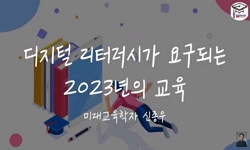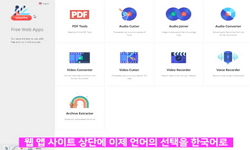The rapid advancement of generative AI (GenAI) has redefined the roles and competencies required of translators. This study explores the critical role of digital literacy in enhancing the quality and efficiency of translation work, emphasizing key ski...
http://chineseinput.net/에서 pinyin(병음)방식으로 중국어를 변환할 수 있습니다.
변환된 중국어를 복사하여 사용하시면 됩니다.
- 中文 을 입력하시려면 zhongwen을 입력하시고 space를누르시면됩니다.
- 北京 을 입력하시려면 beijing을 입력하시고 space를 누르시면 됩니다.
https://www.riss.kr/link?id=A109464129
- 저자
- 발행기관
- 학술지명
- 권호사항
-
발행연도
2024
-
작성언어
-
- 주제어
-
KDC
740
-
등재정보
KCI등재
-
자료형태
학술저널
-
수록면
271-303(33쪽)
- 제공처
-
0
상세조회 -
0
다운로드
부가정보
다국어 초록 (Multilingual Abstract)
The rapid advancement of generative AI (GenAI) has redefined the roles and competencies required of translators. This study explores the critical role of digital literacy in enhancing the quality and efficiency of translation work, emphasizing key skills such as information evaluation, tool utilization, and ethical decision-making. The paper highlights how translators' roles are evolving into AI editors, quality managers, and creative designers through the integration of GenAI tools. To support this transformation, the study proposes practical strategies for strengthening digital literacy in translator education, including practice-oriented learning and ethical training. This research underscores that digital literacy is a vital enabler for optimizing collaboration between AI technologies and human translators. It offers a roadmap for ensuring sustainability and innovation in the translation industry.
목차 (Table of Contents)
- Ⅰ. 서론
- Ⅱ. 번역가의 디지털 리터러시
- Ⅲ. 생성형 AI 시대의 번역과 번역가의 역할
- Ⅳ. 번역 교육과 디지털 리터러시 강화 방안
- Ⅴ. 결론 및 제언
- Ⅰ. 서론
- Ⅱ. 번역가의 디지털 리터러시
- Ⅲ. 생성형 AI 시대의 번역과 번역가의 역할
- Ⅳ. 번역 교육과 디지털 리터러시 강화 방안
- Ⅴ. 결론 및 제언
- 인용문헌
동일학술지(권/호) 다른 논문
-
성인 온라인 학습자의 개인 특성에 따른 제2 언어 학습 동기와 탈동기
- 융합영어영문학회
- 송민영(Min-young Song)
- 2024
- KCI등재
-
A Comparative Study of Students’ Perceptions on ChatGPT and Machine Translators
- 융합영어영문학회
- Hea-suk Kim(Hea-suk Kim)
- 2024
- KCI등재
-
- 융합영어영문학회
- 조보경(Bo-kyung Cho)
- 2024
- KCI등재
-
English Learners’ Perceptions of the Verb-Centered Learning Method based on Dik’s Functional Grammar
- 융합영어영문학회
- Hyo-won Song(Hyo-won Song)
- 2024
- KCI등재





 스콜라
스콜라






